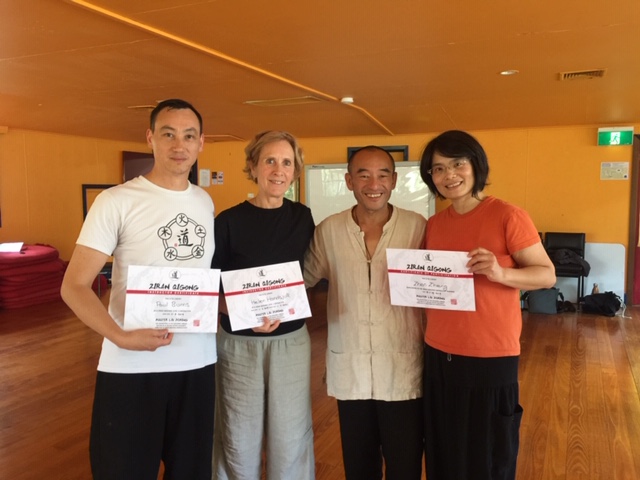What is a balanced state?

Following from our previous blog on what balance means, here we discuss what a balance state looks like. A balanced state is the natural state of our being. It is a state Chinese medicine described as “Yin Ping Yang Mi”. It means Yin is calm and Yang is securely inside ourselves to drive the life force.
There are a few key points to that:
- The balanced state is not 50% vs 50%
- The balance state is dynamic. For example, one may feel excited. This excited state is a Yang state. A healthy situation is that one will get out this excited state and enter into a calmer state (Yin state) afterwards. A constant high state is not a balanced state.
- While a balanced state is the same with everyone, the balanced point differs in everyone as we have different constitutions. One of the examples is about the type of food that is suitable for us. Please check this out on another blog.
So how do we know if we are in a balanced state or not?
This is an important question. If we do not know or experience the balanced state, then we will not be able to detect when our system is off balance. Here are a few key experiences.
- You have a sense of wellbeing: You feel good, well, content, or confident within yourself;
- You go through your daily life without major issues. In Chinese medicine diagnosis, we often ask ten common questions to assess the “ease” of the person. Those questions include sleep, digestion, pain, feel comfortable with temperature, sweating, bowel motion etc. If one is fine in all those daily life events, then one is on the very good track to be balanced. Then we will look at any signs, such as tongue, complexion, awareness etc to detect if there are any uneasiness that have not reached the awareness of the person.
- Your body and mind are in harmony. If one does not have any physical discomfort, but feels anxious and irritable all the time, then this is not a balanced state. On another note, it will be very uncommon to have anxiety, but without any discomfort in the body. The common signs and symptoms associated with anxiety are bodily pain, headache, sleep disturbance or poor or excessive appetite.
- You can remain to be present; and you have the inner strength to deal with things that could throw you off balance. If you do go off the track or feel upset by, for example, a hurtful remark from a loved one, the ability to get back on track, back to be centred or re-gain the balanced state is a sign of inner strength. Mentally when you are “in the zone”, when you are totally focused, this often is also a balanced state.
Being balanced does not mean someone is in a total blissed state all the time without upsetting moments. Remember the Yin and Yang balance is dynamic. If you are upset, a balanced state means you will not stay in the upsetting situation for long. You are there for a few minutes or one hour or a few. You will not spend days or weeks on the same upsetting situation.
How does one stay in a balanced state or learn to be balanced? We will discuss this in future blogs. One of the methods that can be adopted by anyone is Qi Gong, or the arts of Qi (chi). It is a form of slow movement combined with breathing, mindfulness and slow stretching. Please read our blog on this.
During the long weekend holiday a couple weeks back, two staff members from Geelong Chinese Medicine Clinic, Paul Burns and Zhen Zheng, as well as Geelong psychologist Helen Handsjuk, went for a Qi Gong retreat. We had lots of training on how to be centred or balanced with Qi Gong. Paul received his certificate for Level Two instructor and Helen received her certificate for Level One instructor. Well done, and congratulations to both!

(From left to rigth: Paul, Helen, Master Liu and Zhen)
